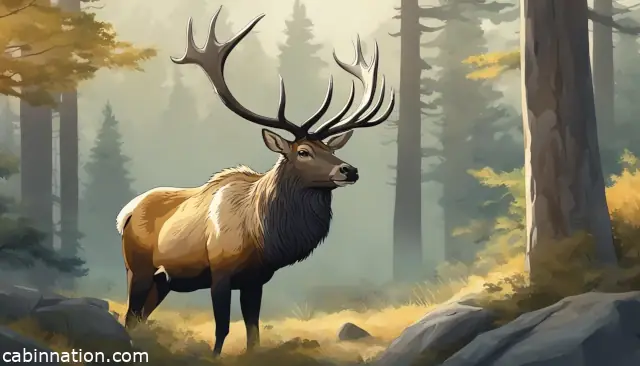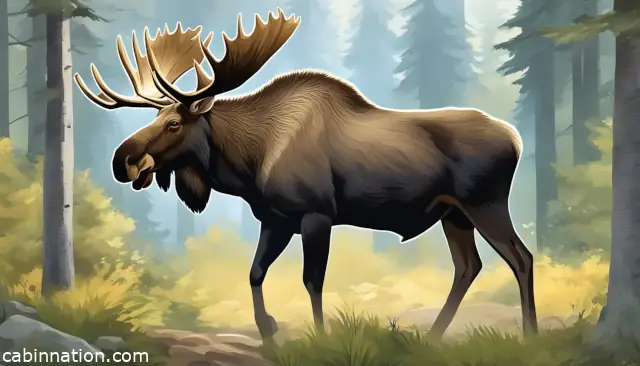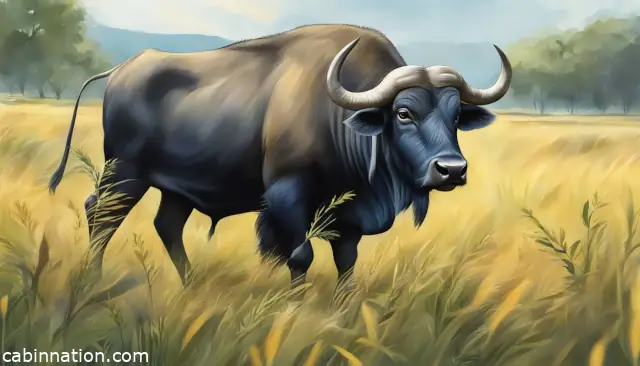When it comes to antlers for dogs, there are both benefits and risks to consider. I’ve found that antlers can be a great alternative to traditional chew toys for many dogs, especially due to their durability and natural composition. In fact, some pet experts recommend antlers occasionally as they are free from synthetic materials, dyes, and preservatives often found in commercial chew toys. So, are antlers safe for dogs?

One of the things that make antlers an attractive option is they provide essential minerals like calcium, making them a better option than some other chews for dogs. However, this does not mean that all breeds can enjoy them without risks. It is important to be aware of the potential dangers that could arise from giving antlers to your dogs.
One of the major concerns with antlers is their hardness. While they can indeed provide great entertainment and dental benefits for dogs, their firm structure can lead to injuries. There have been reports of broken or splintered antlers causing blockages in a dogs mouth, throat, or intestines, with some cases requiring emergency surgery.
When choosing antlers for dogs, it is very important to select the appropriate size and type for your pet. Not all antlers are created equal, and the differences in antler size and texture from growth can impact your dog’s experience. For example, moose antlers tend to be softer, while deer antlers are relatively harder in comparison.
Careful observation of your dog’s chewing behavior is also vital. Some dogs might be more aggressive chewers, which might not be suitable for antlers due to the risks mentioned above.
If your dog has a history of dental problems or shows signs of discomfort while chewing on an antler, it might be best to consider alternative chew toys.
Always prioritize your dog’s safety and well-being, and consult with your veterinarian if you have any questions, doubts or concerns about offering antlers as a chew toy. By being well-informed and cautious, you can ensure your dog’s playtime is both enjoyable and safe.
Contents
Types of Antler Chews for Dogs
Deer Antlers for Dogs
Deer antlers are a popular choice for dogs because they are a sustainable and natural source of minerals such as calcium, potassium, zinc, phosphorus, iron, and magnesium.
They can be found in various sizes, making it easy to find the right one for my dog’s size and chewing habits.
They can be found in various sizes, making it easy to find the right one for my dog’s size and chewing habits.
Elk Antlers for Dogs

Elk antlers are also an excellent choice for dogs, as they provide the same essential minerals as deer antlers. Elk antlers are generally denser than deer antlers, meaning they may be more suitable for aggressive chewers.
When choosing an elk antler for my dog, I sometimes look for one that is cleanly split in half to expose the marrow. Split antlers makes it easier for my dog to access the nutritious marrow and hopefully minimize the risk of tooth fractures.
Reindeer Antlers for Dog to Chew
Reindeer antlers for dogs are another type of antler that can provide essential minerals to maintain a dog’s health. They have a similar composition as other antlers but might be less common in certain regions. I have been able to track them down at some specialty pet stores.
Moose Antlers for Dogs
Moose antlers are softer than other antlers and are often sold in different slices, sizes, and shapes allowing you to select one that works for your dog. Consider your dog’s chewing habits and size to find the most appropriate option.

Nutritional Value of Antlers
Calories in Antlers
Antlers are generally low in calories, as the majority of their composition consists of minerals and other nutritional components. While the specific caloric content may vary depending on the type and size of the antler, the caloric intake from an antler is negligible for dogs. It’s important to remember that dogs mainly consume small scrapes in regular chewing sessions, resulting in limited calorie consumption.
Antler as a Mineral Source
Antlers are a valuable source of essential minerals for dogs, contributing to their overall health and wellbeing. Among these minerals, we find:
- Calcium: playing a crucial role in building and maintaining strong bones and teeth.
- Phosphorus: supporting the development and maintenance of bones, teeth, as well as metabolism and energy production.
- Potassium: involved in muscle and nerve function, regulating fluid balance and maintaining normal blood pressure.
- Magnesium: for muscle and nerve function, and the formation and maintenance of healthy bones.
- Iron: necessary for red blood cell formation as well as oxygen transportation to cells, supporting energy production and overall health.
- Zinc: involved in immune system function, wound healing, and cell growth and maintenance.
In addition to these minerals, antlers also contain marrow, which provides a nutritious treat for dogs. The marrow found inside some antlers supplies essential fatty acids and vitamins, further contributing to the overall nutritional value of antlers.
Potential Risks of Antlers for Dogs
Antler’s Choking Hazard
One of the primary concerns for giving antlers to a dog is the risk of choking. The smaller fragments of antlers can pose a significant choking hazard. When a dog chews on an antler, shards or smaller pieces can break off, and if ingested, these fragments may get stuck in their mouth or throat.
Hazards of Splintering Antlers
Splintering antlers pose a serious threat to a dog’s health. When antlers break or splinter, they can get lodged causing dangerous blockages that could require emergency surgery. Splintered antlers can also result in dental fractures and cause injuries to dog’s gums.
Antler Size and Obstruction Risks
Choosing the right size of antlers for your dog helps in preventing potential risks. If the antler is too small, it can become a choking hazard.
If it’s too large, your dog may have difficulty chewing it, which could result in obstructions or blockages in their digestive system. Monitoring your pup while they’re chewing on antlers can help to prevent both choking and obstruction risks.

Safety Measures for Dog’s Antler Chewing
Supervising Dog’s Antler Chewing
When giving your dog antlers to chew on, it is essential to always supervise their chewing. Monitoring helps prevent potential hazards.
While antlers can be a tough and long-lasting treat, they might break or splinter if chewed too aggressively or as they are chewed and break down over time. In cases like these, it’s important to be present to intervene and remove the antler from your dog before any harm occurs. Keep watch and inspect your dog’s teeth regularly for signs of damage.
Choosing The Right Size Antler
I consider several factors when selecting the appropriate antler size when picking the right size of antler for my dog.
- Dog’s size and age: Smaller dogs and puppies may need smaller antlers, while larger dogs can handle bigger ones. In the case of antlers for puppies, it is best to ensure that the antler’s size and toughness are appropriate for their developing teeth and jaws.
- Chewing strength: Some dogs are more aggressive chewers, and their antlers must be able to withstand their biting force. A harder antler type, such as elk, might be better suited for these dogs.
- Preferences: I also take into account my dog’s preferences. Some dogs prefer thicker or thinner antlers, while others may have a preference for certain antler types, like deer or elk.
Antlers versus Traditional Dog Bones
Antlers are a popular choice because they are considered more natural and long-lasting compared to artificial toys. They tend to be less likely to splinter as easily as bones or other toys, which can help ensure my dog’s overall oral health.
Traditional dog bones are a long-time favorite for dogs. They not only help maintain dental hygiene but also can help alleviate stress, boredom, and anxiety. The safety of these bones can vary depending on their size, shape, and material.
Some veterinarians argue that antlers may be too hard for a dog’s teeth, potentially causing fractures or injuries. Similarly, traditional dog bones can also pose a risk if they splinter or break into sharp pieces.
As you weigh the pros and cons of antlers and traditional dog bones, your decision ultimately boils down to understanding your dog’s individual needs and preferences.
Alternatives to Antlers as Dog Chews
Rawhide as a Chew Toy
One popular alternative to antlers for dogs are rawhide chews. Rawhide chews serve the same purpose as antlers; providing dental benefits, alleviating boredom, and reducing anxiety.
They come from the inner layer of cow or horse hides and are known to be easier on a dog’s teeth compared to antlers. Rawhide can also come in different sizes, shapes, and flavors, making it an ideal choice for dogs with various preferences.
When choosing rawhide as a chewing option is to make sure you purchase high-quality products to ensure the safety of your dog. Rawhide chews should be non-toxic and preferably made from natural ingredients.
Water Buffalo Horns as Chews
Another viable option as an antler alternative is water buffalo horns. Like antlers, water buffalo horns provide a long-lasting chew experience for dogs and help maintain their dental health. These horns are also known for being less likely to splinter or break apart, which can be a safety concern with other chew toys.

Are Antlers Safe for Dogs: Consult a Veterinarian
When considering antler chews for your dogs, make sure to seek advice from a veterinarian to ensure the safety and suitability of antlers for your furry friends.
Veterinarians have the knowledge and expertise to guide pet owners like you in making informed decisions about what safe chew options are best for my dog’s dental health and overall well-being.
If you have concerns about the potential risks associated with antler chews, such as broken or chipped teeth, bleeding gums, or internal complications due to splintering please consult your veterinarian before introducing anything new to your dog’s routine.
Additionally, regular dental checkups can help ensure my dog’s oral health is not negatively impacted by the use of antler chews.
